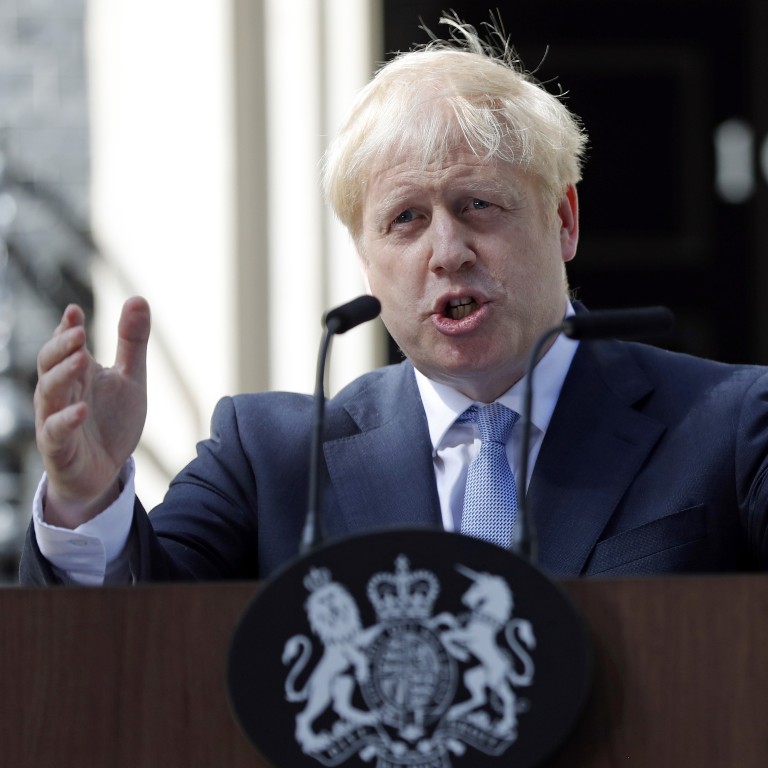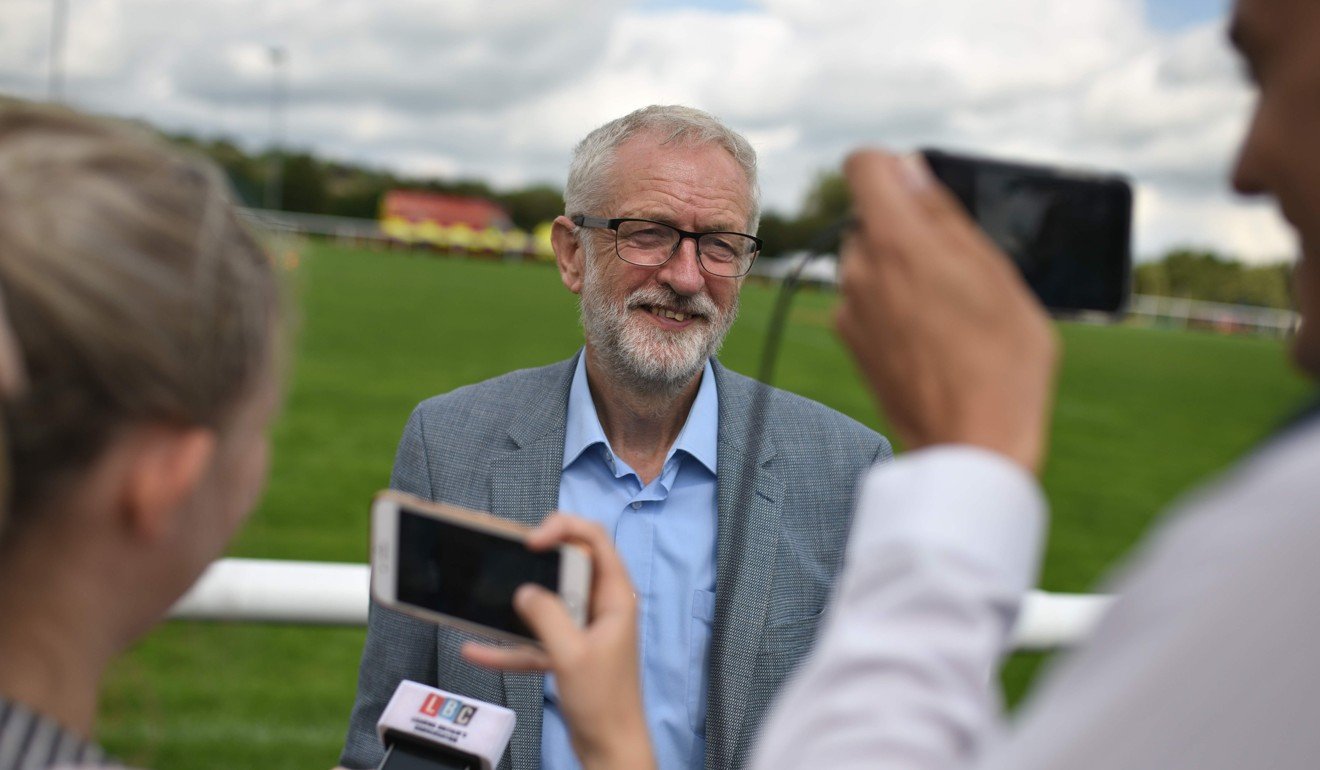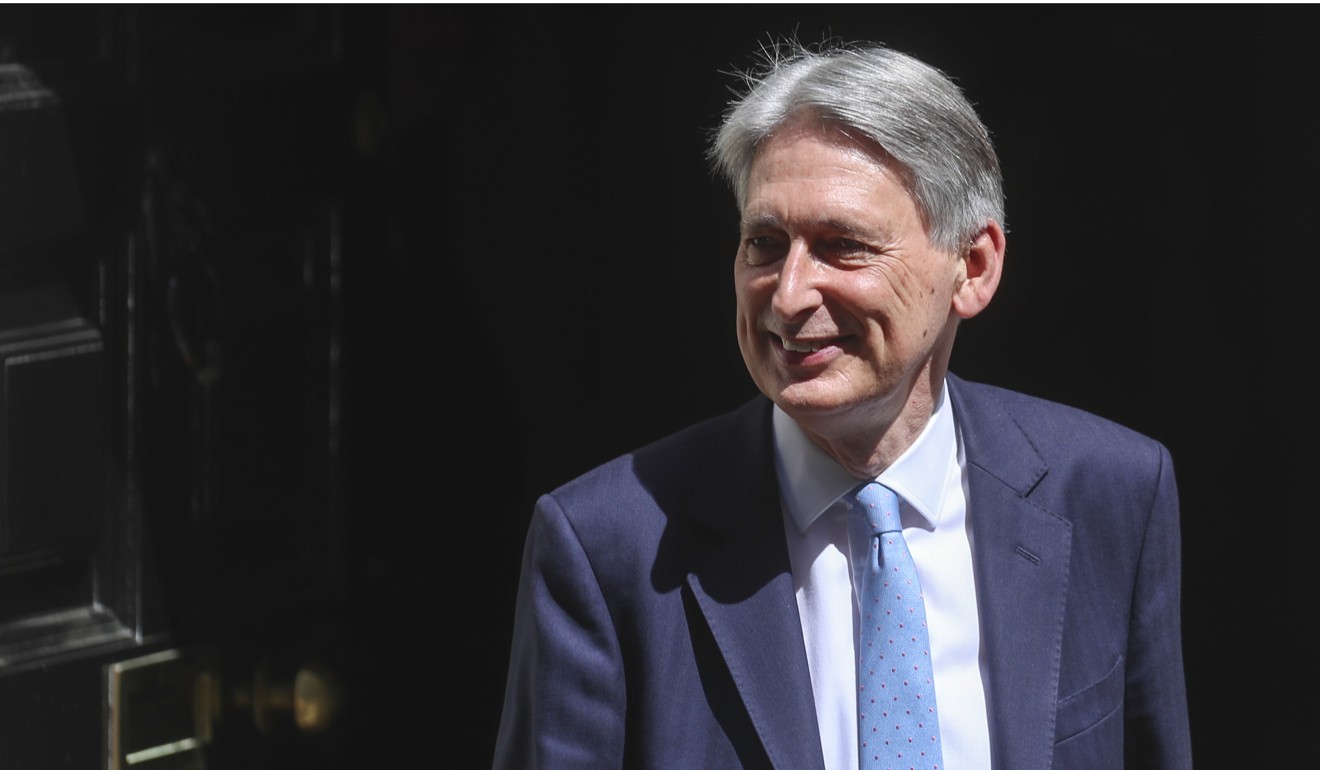
Boris Johnson’s spending spree fuels rumours of early UK election
- The British prime minister has announced spending pledges at a rate of about £2 billion per week since coming to power
- But economists say he’s trying to fix political rather than economic problems
With a wafer thin majority in parliament of just one, Johnson risks being forced into an early general election if he cannot get backing for his Brexit plans. He has promised to deliver Brexit by Halloween, with or without a deal – “do or die” – and his opponents see a vote of no confidence as one of the only ways to stop him. The government privately accepts an election is inevitable, according to one official.

Opposition Labour Party leader Jeremy Corbyn signalled he will call a vote of no confidence soon after parliament returns from summer recess, in a bid to prevent an economically damaging no-deal Brexit. He could succeed, triggering a general election if he gains support from enough rebel Conservative Party lawmakers.
A government official said that they do not comment on hypothetical questions and it is not policy to hold a general election. A spokesman for the treasury said the spending round will deliver investment in public services for after Brexit.
Johnson’s spending plans appear to be based on fixing political rather than economic problems, economists say. That is risky given uncertainty around Brexit and after data on Friday showed the economy contracting for the first time in seven years, said Ben Zaranko, research economist at the Institute for Fiscal Studies.
The Office for Budget Responsibility estimates a no-deal Brexit could add £30 billion a year to the deficit and plunge the economy into a year-long recession. Zaranko said a safer strategy would be to wait for Brexit and to hold a spending review at the same time as a full budget.
“It seems a little reckless to commit to big funding increases for these services over multiple years while at the same time talking about cutting taxes and at the same time risking a departure from the EU that makes us permanently poorer,” Zaranko said. “The combination of those things adds up to a big increase in borrowing which cannot be sustained forever.”
While it’s still early, Johnson’s spending strategy does not appear to be tackling underlying economic problems, such as Britain’s persistently weak productivity and an ageing population, said Gemma Tetlow, chief economist at the Institute for Government think tank.
“Nothing we’ve heard so far acknowledges the longer term fiscal pressures that this government faces,” she said. The prisons announcement “appears to be about extra money for additional prison places – rather than to deal with problems of rising levels of violence already apparent in existing prisons,” she said.

After a decade of austerity, the new prime minister is changing course, promising tens of billions of pounds of tax cuts and spending increases.
During his leadership campaign, Johnson pledged to use the £15 billion of “headroom” built up ahead of leaving the EU that he inherited from former chancellor Philip Hammond to ease pressure on public services. That headroom lets the government increase borrowing without breaking its own fiscal rules in 2020-21. But it might not be available in the event of a no-deal Brexit, and the new Chancellor Sajid Javid has said he will stick to those plans.
Hammond had also held out the prospect of an end to years of austerity that cost the Conservatives their parliamentary majority in the 2017 general election, but then delayed a spending review until the outcome of the Brexit negotiations was clearer.
Forcing through Brexit without alternative trading arrangements in place, which the government says is a real prospect, could bludgeon growth and drive up inflation.
“A looser fiscal policy would merely mitigate some of the damage caused by a no-deal departure,” said Martin Beck, an economist at Oxford Economics. “An already unpredictable outlook for the economy has become even more so.”

